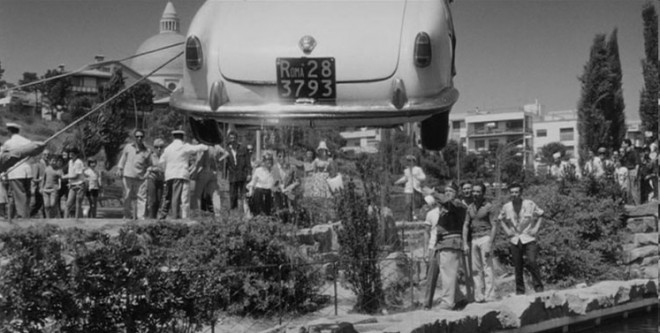What a striking image: in deep darkness, a streak of light that materializes into a young bride in her wedding gown diagonally fleeing across the screen. Apart from the dreamlike quality of the image itself, three things about writer-director Nagisa Oshima’s Etsuraku, adapted from Futaro Yamada’s 1962 novel Kan no Naka no Etsuraku, suggest we have been plunged into someone’s dream: the interiority projected by the protagonist’s recurrent voiceover; the stretch of negative space in numerous compositions that strengthen the impression of this interiority; the scarcely believable, convoluted and complicated plot. Isn’t Atsushi Wakizaka, the poor boy who fell in love with the rich girl he once tutored, who is now marrying according to her station, dreaming everything we see, including the murder he committed onboard a train to secure the girl’s honor and the fortune he fell into, allowing him a series of lovers to supplant his heart’s desire?
Regardless of how dreamily or literally one processes this relatively weak film by one of Japan’s three or four greatest filmmakers, the major themes emerge with almost alarming, feverish clarity: the role of money, status and power in postwar Japanese society. Even lesser Oshima tackles serious matter. As Wakizaka offers to keep one woman after another by dint of his serendipitous wealth (someone else’s embezzled funds), it is poignant to hear one of them muse that she could devote herself to research if only her living expenses were taken care of. Oshima takes swipes at capitalism with the best of them.
Anchoring the film is its diminutive star, Katsuo Nakamura, whose lead performance layers humiliations and imaginative compensations: a desperate spiraling out in an ultimately inescapable dead-end.
At one point Joji Yuasa’s main musical theme, a parody of delirious Hollywood schmaltz, stops mid-note!
